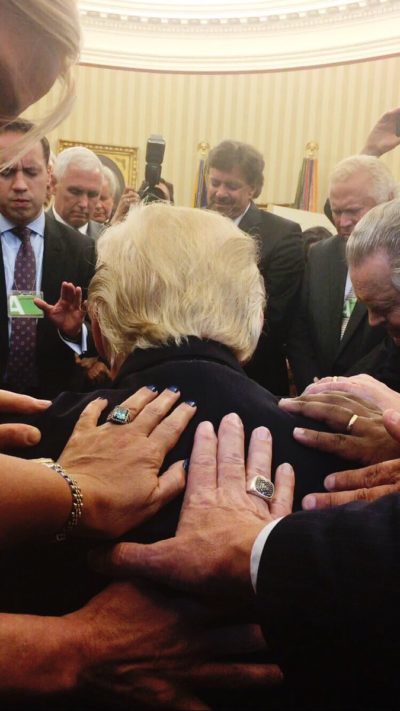They will know we are Christians by our fake news.
In a surprising plot twist, the Wall Street Journal reports this morning that President Trump’s former lawyer Michael Cohen is being accused of failing to pay the Chief Information Officer of Liberty University John Gauger for his poll rigging services. Cohen arranged with Gauger’s tech firm to manipulate the results of two online polls and set up a fake Twitter account. Gauger claims Cohen didn’t pay him in full.
Womp, womp.
According to the WSJ report, Gauger doesn’t dispute the work involved. He got paid a portion of the fee in cash which Cohen allegedly gave in a Wal-Mart bag.
My interest in the story is less about Cohen and more about Gauger. According to the story, Gauger set up an algorithm to repeatedly vote for Trump in a CNBC online poll of top business people. Even with Gauger’s help, Trump couldn’t crack the top 100. The Liberty administrator also tried to manipulate a Drudge poll and set up a “Women for Cohen” twitter account. Sounds like fake news to me.
Most people (I hope) realize those polls are worthless for reasons such as implied by this news. However, some people use them to shape their image or manipulate public opinion. Does anyone doubt that Trump would have used positive results to his advantage?
It is one thing to vote a few times for your favorite band in an online poll, it is another to craft a service around dishonesty. This firm sells the ability to use technology to make fake news. I wonder if the IT classes at Liberty University teach that.
I know much of what we run into online is an effort at persuasion and manipulation. I hope this story raises awareness about the many ways we are surrounded by efforts to move and shape our opinions and behavior. Furthermore, I hope Christians begin to recognize that fake news is coming from sources within the camp.



